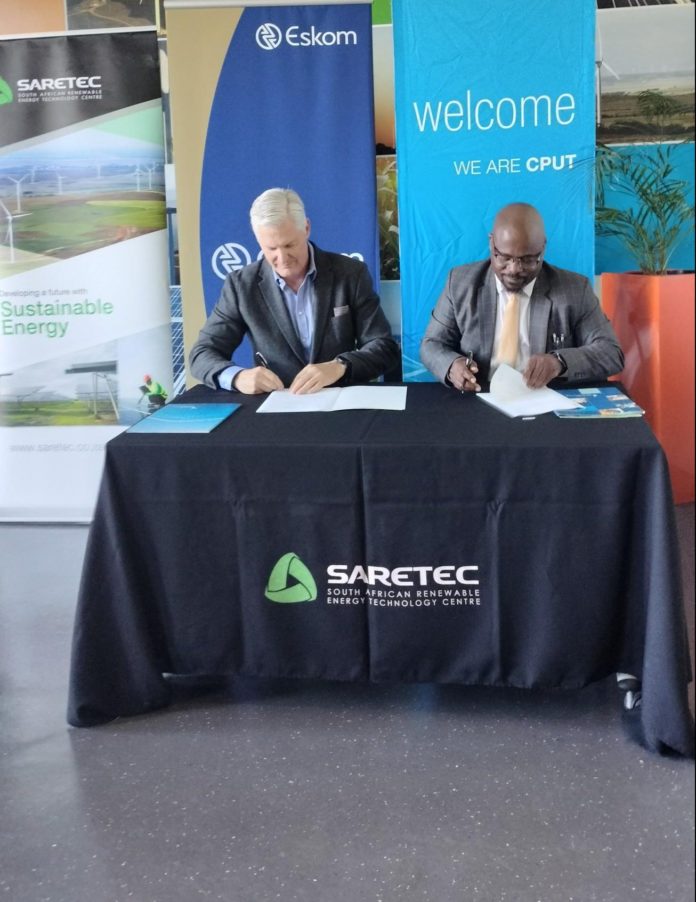Eskom and the Cape Peninsula University of Technology have signed an agreement to establish a renewable energy training facility at the Komati Power Station in Mpumalanga, to upskill workers.
This is part of the transition to lower carbon technologies and cleaner energy.
The objective is to educate, reskill, and upskill Eskom Komati Power Station staff and qualifying beneficiaries from the surrounding communities in the Mpumalanga region.
According to a statement by Eskom, the Memorandum of Agreement signed yesterday, forms part of an initiative by the Department of Higher Education and Training, called the South African Renewable Energy Technology Centre (SARETEC).
SARETEC is managed by CPUT and expedites specialised industry-related and accredited training for the entire renewable energy (RE) industry including short courses and workshops.
The power utility says SARETEC has, since its inception, established itself not only as a renewable energy subject
matter expert but significantly contributed to the national skills pool of artisans and technicians with a particular focus on wind and solar.
The Training Facility at Eskom’s Komati Power Station will be managed by Eskom’s Academy of Learning (EAL).
Eskom says renewable energy industry associations including the South African Wind Energy Association (SAWEA) and the South African Solar Photovoltaic Industry Association (SAPVIA) are an integral part of the South African renewable energy industry and promote innovation and cohesion amongst all the role players and stakeholders.
Eskom CEO Andre de Ruyter is visiting CPUT today to sign a memorandum of agreement for the university, via its SA Renewable Energy Technology Centre, to upskill Komati Power Station staff in Mpumalanga. He is pictured here with VC Prof Chris Nhlapo pic.twitter.com/SrlbPfgXhw
— CPUT (@CPUT) August 22, 2022
In late July, President Cyril Ramaphosa announced several measures to beat loadshedding, including a big push towards renewable energy.
He said the existing procurement programmes, through the Renewable Energy Independent Power Producer Programme (Reippp), would be expanded.
Bid window 5 of the programme, which is facing constraints due to local content requirements and pricing, will be assisted to ensure that “all projects close” by “adopting a pragmatic approach to local content requirements”.
Bid window 6, which is still open, will be doubled from 2600 MW to 5200 MW.
Government also removed the 100 MW licensing threshold for embedded generation completely.
This will enable private investment in electricity generation to rise to higher levels. All new generation projects will still be required to be registered.




